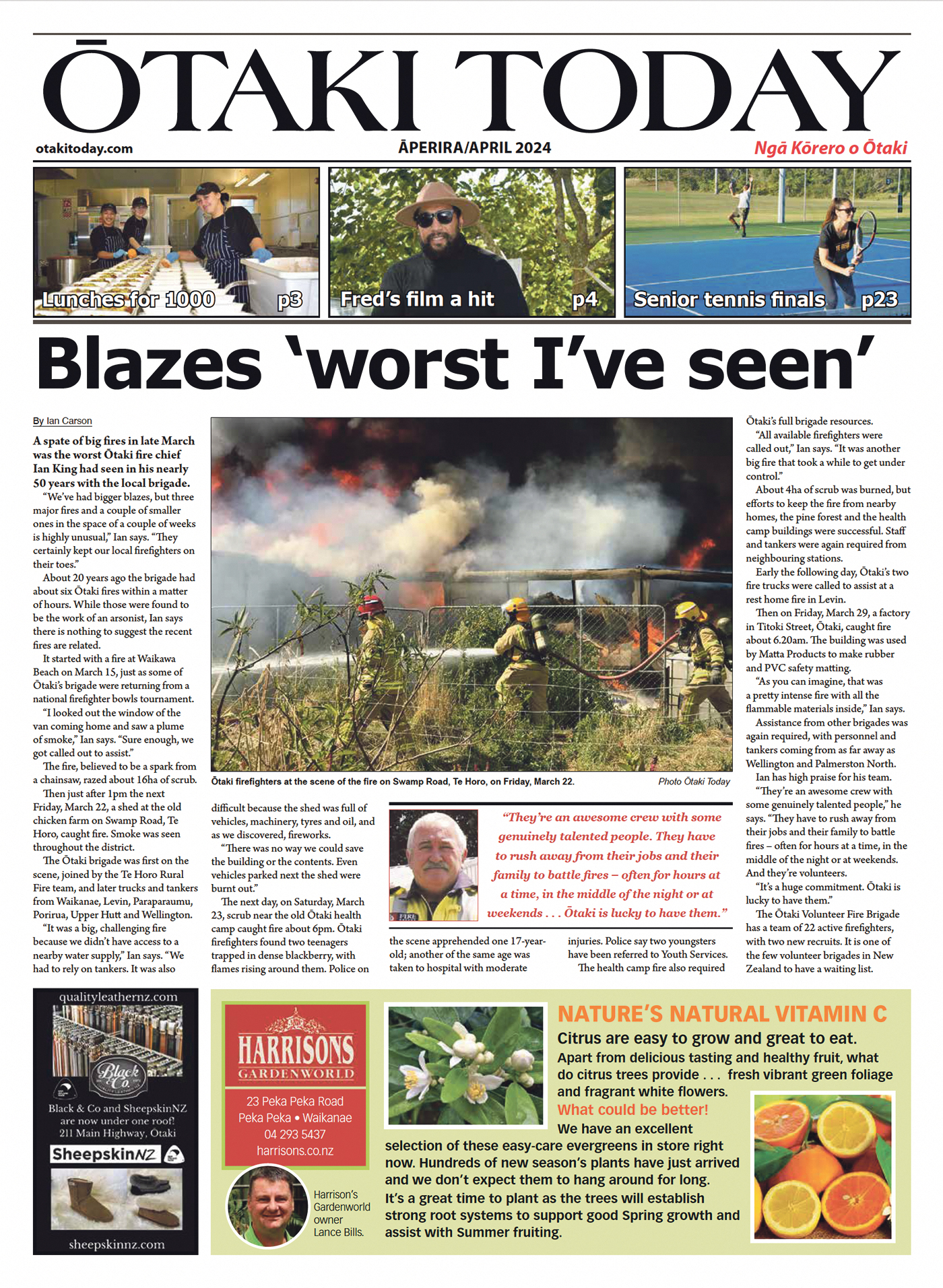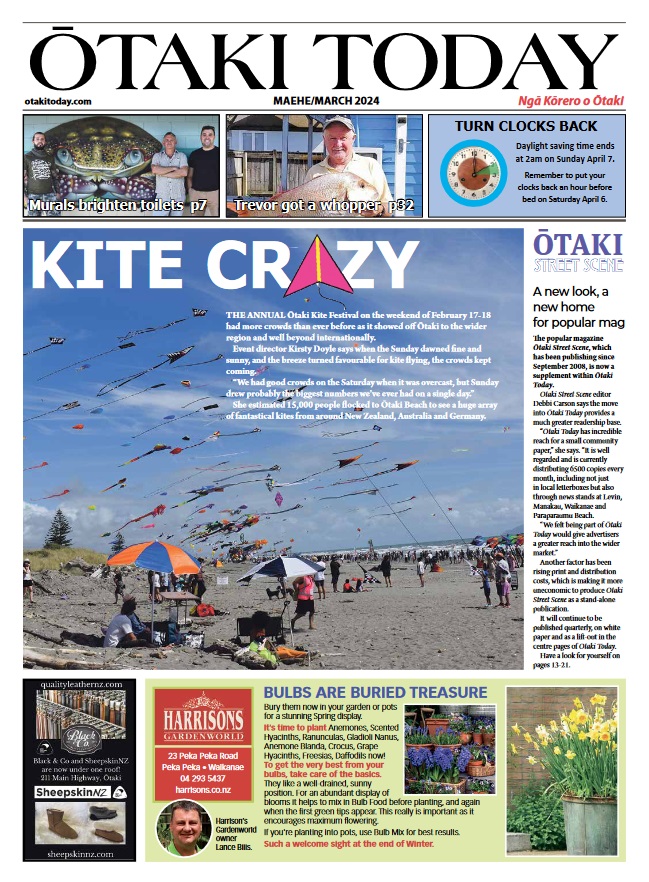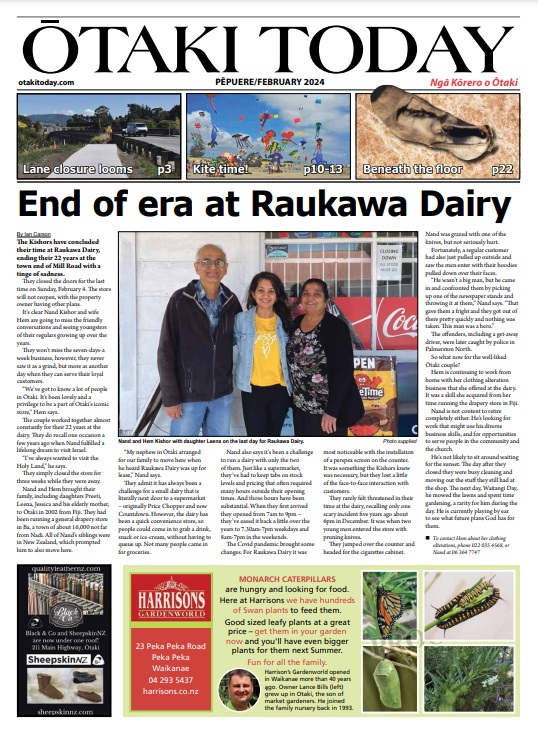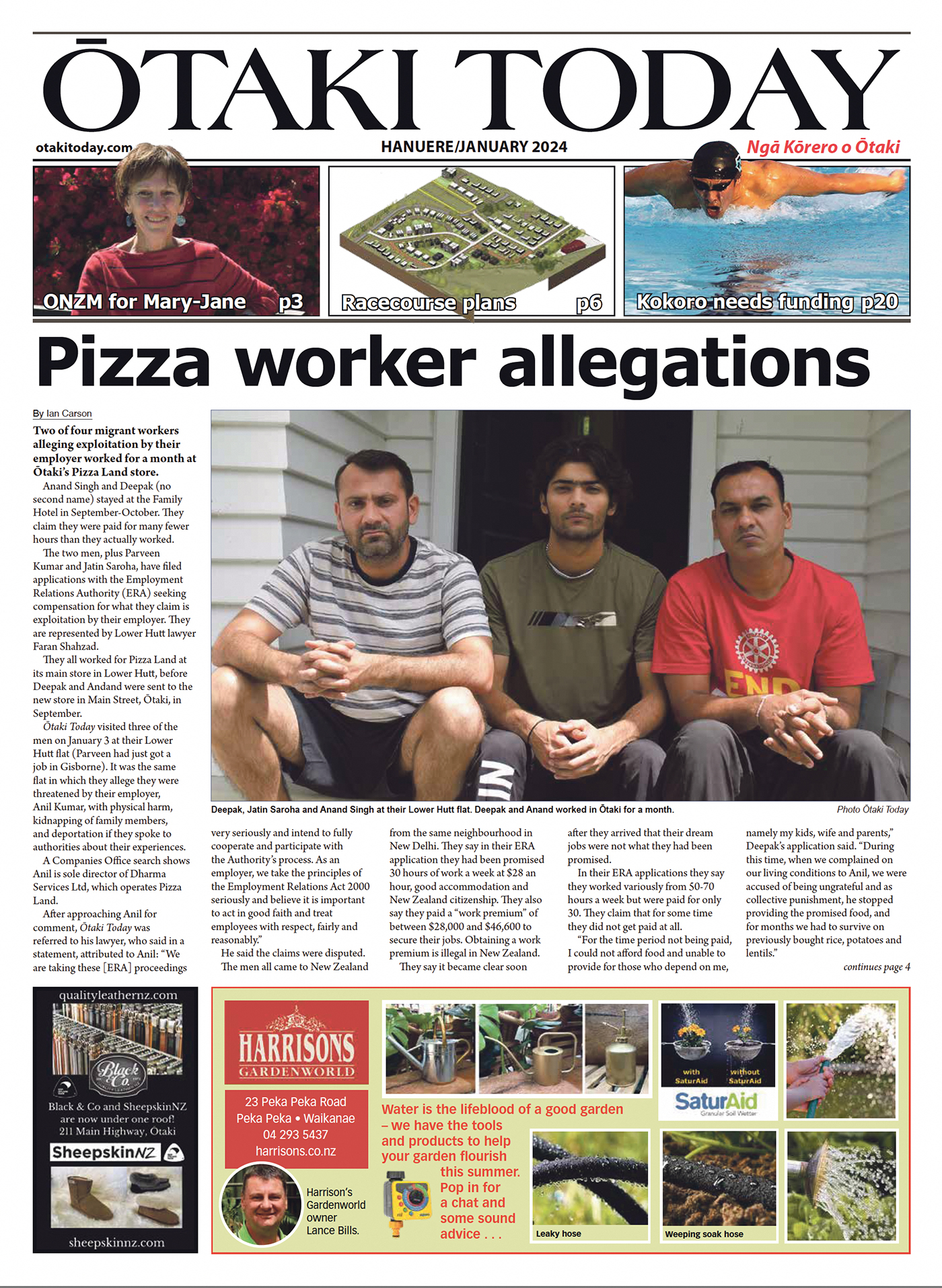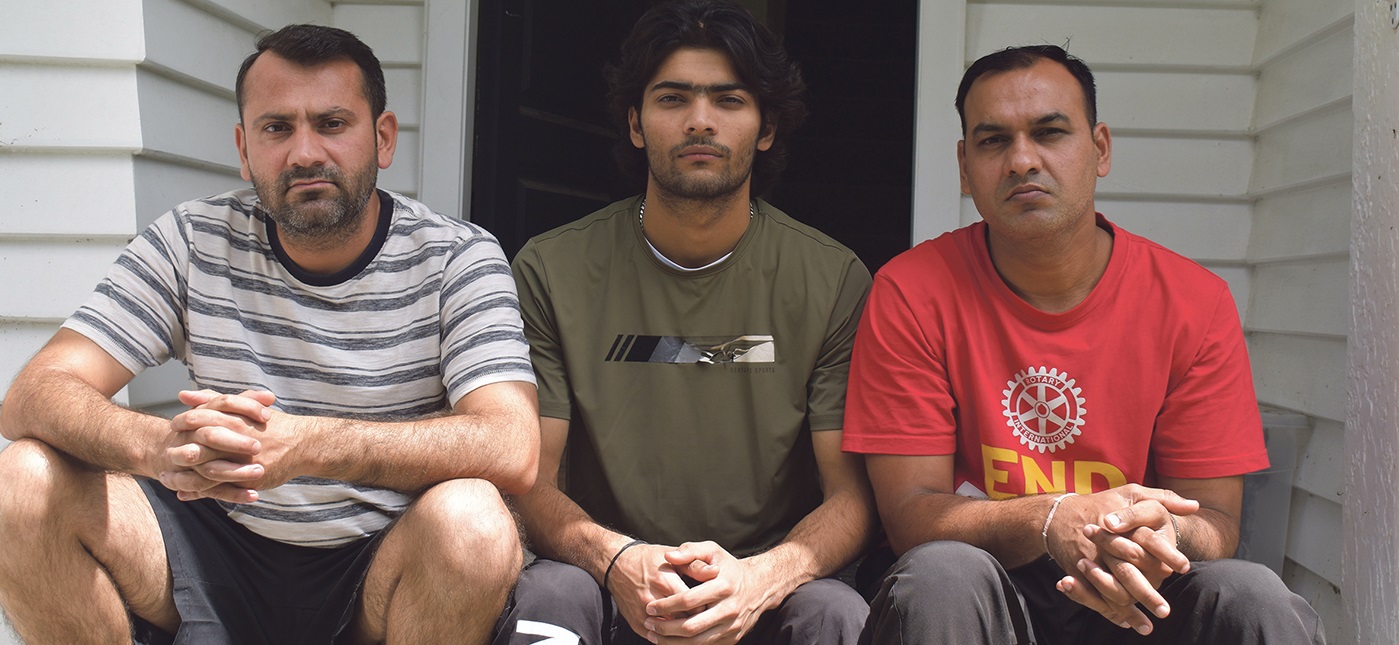
Two of four migrant workers alleging exploitation by their employer worked for a month at Ōtaki’s Pizza Land store.
Anand Singh and Deepak (no second name) stayed at the Family Hotel in September-October. They claim they were paid for many fewer hours than they actually worked.
The two men, plus Parveen Kumar and Jatin Saroha, have filed applications with the Employment Relations Authority (ERA) seeking compensation for what they claim is exploitation by their employer. They are represented by Lower Hutt lawyer Faran Shahzad.
They all worked for Pizza Land at its main store in Lower Hutt, before Deepak and Andand were sent to the new store in Main Street, Ōtaki, in September.
Ōtaki Today visited three of the men on January 3 at their Lower Hutt flat (Parveen had just got a job in Gisborne). It was the same flat in which they allege they were threatened by their employer, Anil Kumar, with physical harm, kidnapping of family members back in India, and deportation if they spoke to authorities about their experiences.
A Companies Office search shows Anil is sole director of Dharma Services Ltd, which operates Pizza Land.
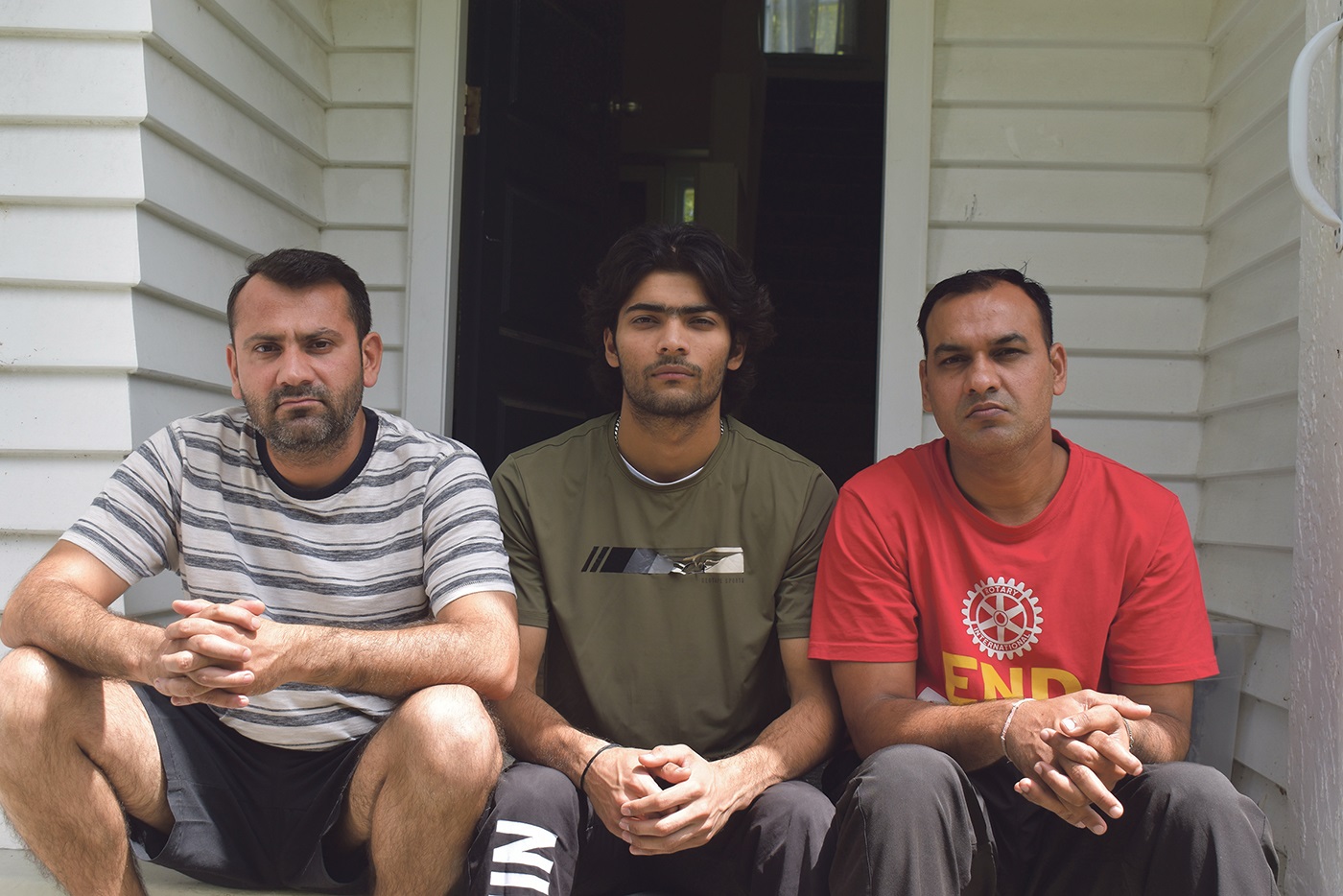
Deepak, Jatin Saroha and Anand Singh at their Lower Hutt flat. Deepak and Anand worked in Ōtaki for a month.
Photo Ōtaki Today
After approaching Anil for comment, Ōtaki Today was referred to his lawyer, who said in a statement, attributed to Anil: “We are taking these [ERA] proceedings very seriously and intend to fully cooperate and participate with the Authority’s process. As an employer, we take the principles of the Employment Relations Act 2000 seriously and believe it is important to act in good faith and treat employees with respect, fairly and reasonably.”
He said the claims were disputed.
The men all came to New Zealand from the same neighbourhood in New Delhi. They say they had been promised 30 hours of work a week at $28 an hour, good accommodation and New Zealand citizenship.
They also say they paid a “work premium” of between $28,000 and $46,600 to secure their jobs. Obtaining a work premium is illegal in New Zealand.
They say it became clear soon after they arrived that their dream jobs were not what they had been promised.
In their ERA applications they say they worked variously from 50-70 hours a week but were paid for only 30. They claim that for some time they did not get paid at all.
“For the time period not being paid, I could not afford food and unable to provide for those who depend on me, namely my kids, wife and parents,” Deepak’s application said. “During this time, when we complained on our living conditions to Anil, we were accused of being ungrateful and as collective punishment, he stopped providing the promised food, and for months we had to survive on previously bought rice, potatoes and lentils.”
He and Anand had brought some savings with them, which they had to use to buy anything else. Jatin had only $100.
Meanwhile, the men say five of them all had to sleep on the floor in one room of the flat, and were each charged $220 a week. Their beds were plastic wrapping laid on the floor.
“It was really difficult, and it’s still stressful while we wait to see what happens with our case,” Jatin says. “We haven’t got work and our families back home are worried about us.
“We were going to send money home, but there isn’t any. Some of us have a wife and kids who rely on us.”
In his ERA application, he says for the hours he worked his average pay was $4.12 an hour.
Deepak’s application says for nearly two months he wasn’t given any days off. He had to work when he was ill and on public holidays, for no extra pay or alternative days off. He says he and other workers were also often woken in the middle of the night to go to the Lower Hutt store to check the dough and put it in the fridge.
Anand alleges they were threatened with deportation if they said anything. That would have meant the humiliation of returning home penniless.
However, the men met Faran, who encouraged them to take a case to the ERA and apply to the Ministry of Business, Innovation, and Employment (MBIE) for Migrant Exploitation Protection Visas, which allows them to leave their job while any allegations are being investigated.
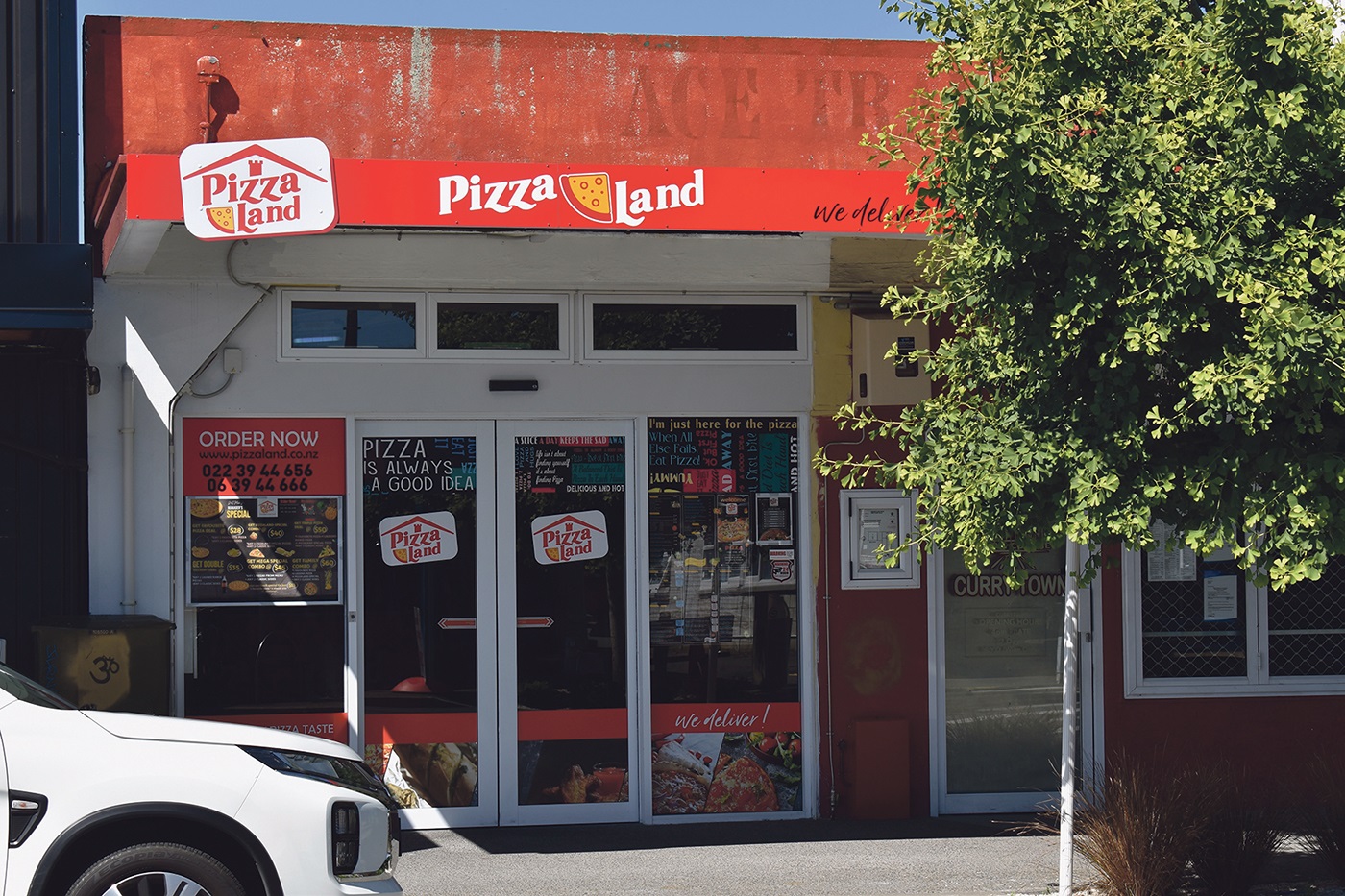
The Pizza Land store in Ōtaki.
An MBIE spokesperson told Ōtaki Today they would not comment on individual cases, but applications for Migrant Exploitation Protection Visas were processed as a high priority
Meanwhile, Deepak, Anand and Jatin are desperate to find work. They all have experience in hospitality, in Deepak’s case having worked in 5-star New Delhi hotels.
“We’re honest people and we’re not afraid of hard work,” he says. “We would love to be working for a good employer, anywhere in New Zealand, including Ōtaki.”
Jatin says they all thought New Zealand would be a great place, but their experiences have tainted that perception.
“It’s hard to be happy here when you’ve been treated badly and you’re stressed about your future.”
Lawyer Faran Shahzad says he would be happy to talk to any employer who could offer the men jobs. He is offering free assistance with contracts, visas etc.
Contact faran.shahzad@faranip.com
OTHER STORIES
LATEST POSTS
- Councillor moots Blue Bluff swing bridge solution
- Fredrick’s short film a festival hit
- Local school lunches feed 1000 - Ōtaki Today
- Driver nabbed on expressway with kids at 175km-h
- Blazes worst I’ve seen – fire chief
- Cobblers Soup team looking for helpers
- Community gets behind Te Horo Hall fund
- Library recycling old domestic batteries recycling old domestic batteries
- Reservoir work progresses apace
- Murals brighten Te Horo Beach toilets
- Local SAR teams help in bush search
- New passion, new business for busy Bee
- Kite crazy
- Big programme for Māoriland 2024
- Green waste beach dumping concerns
- Six-month bridge lane closure looms
- End of an era as Raukawa Dairy closes
- Community at heart of Mary-Jane’s ONZM
- Cops nail burnout hoons
- Racing club development goes for consent
- Pizza workers claim exploitation
- Memories revived as teen friends reunite
- All Saints gets a spruce-up
- Bi-lingual signs aid communication
- Kāinga Ora reveals new homes
- John, Rex in college Hall of Fame
- Kelly-Anne first wāhine carver to graduate
- Challenges, but optimism for Ōtaki shops
- New MP Tim ‘getting on with it’
- New first response unit for Ōtaki
- Bridge work brings stop-start traffic
- Te Horo keeps pushing for buses to the beach
- Dux Hayley has eyes on engineering
- Trucker gate - Bulls hit road as door opens
- New heritage entity launched
- Aberdeen Scots welcomed at marae
- Plea to Waitangi Tribunal- ‘Give our stuff back’
- Brent honoured for 60 years in Scouts
- Report disputes Moy access safety issues
- Bryan helps Canadians with huge blazes
- New barrier saves driver
- New chapter for Ahoaho
- Training begins at old health camp
- Support for Te Horo bus stops
- Don’s book adds to colourful garden history
- ‘Quiet’ streets threatened by development
- Reservoir residents’ hopes dashed
- ‘Kuku kids’ reclaim their stories at treaty hearings
- Waitohu group helps hold back the sea
- Houses will have to move from coasts, says panel

